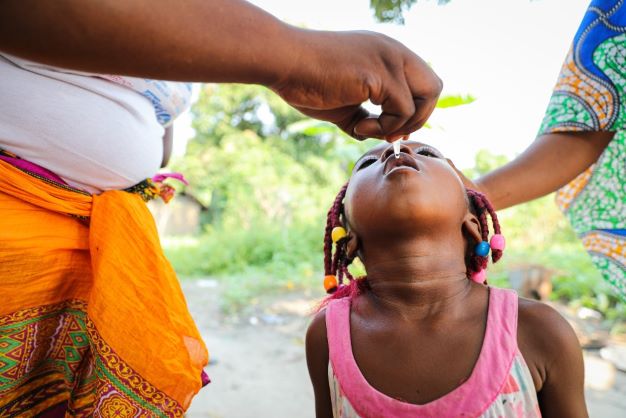Every year the World Health Organization (WHO) marks African Vaccination Week in the last week of April, in conjunction with World Immunization Week. The week provides the opportunity to showcase the importance of vaccines in all our lives, and how they protect us, young and old, against more than 25 vaccine-preventable diseases.
This year’s theme, “Long Life for All”, highlights the life-saving potential of vaccines for everyone, everywhere. Yet, in Africa, tens of millions of people are still missing out on some, or all, their scheduled immunizations against diseases that have long been eradicated by vaccines.
More than a year into the COVID-19 global vaccine rollout, Africa is benefiting – if later than the rest of the world – from the speedy, efficient development of vaccines to curb the virus. There are currently 10 COVID-19 vaccines available through the COVAX Facility, with more in the research and development pipeline.
Although 480 million COVID-19 vaccines have been administered in Africa to date, making it the biggest vaccine rollout in the history of the continent, only 18.7% of the African population is fully vaccinated – lagging woefully behind the global average of 58%.
WHO, together with Gavi, the Vaccine Alliance, UNICEF, World Bank, and the United States and Africa Centers for Disease Control and Prevention, has identified 20 priority countries in the WHO African Region for intensified support. Multi-partner country support teams are currently on the ground helping countries with technical and financial resources to ramp up overall and high-priority group COVID-19 vaccination coverage.
As we work to accelerate COVID-19 vaccination efforts, it is critical that we don’t ignore the urgent need to also strengthen routine immunization efforts. Since 2020, routine immunization has been negatively impacted by COVID-19 containment measures, leading to tens of millions of infants in Africa missing out on essential childhood vaccinations. These include the Diphtheria, Tetanus toxoid and Pertussis (whooping cough)-containing vaccine, as well as the measles vaccine.
Earlier this year, a case of wild poliovirus type 1 was recorded in Malawi. This vaccine-preventable disease had been eliminated from the African Region since August 2020. I commend the Government of Malawi for moving swiftly to contain the outbreak, quickly vaccinating 2.7 million children younger than five against the disease. However, the incident is a timely reminder that routine vaccinations should be a non-negotiable on our continent.
We have also seen some good examples of best practice, with routine immunization integrated with COVID-19 vaccination. In response to the Yellow Fever outbreak in late 2021, for instance, mobile vaccination teams in Ghana carried Yellow Fever vaccines along with COVID-19 vaccines, vaccinating all eligible people against both. Nigeria recently launched the optimized SCALES 2.0 strategy, which will integrate routine childhood immunization with COVID-19 vaccination at its fixed and mobile vaccination sites.
As WHO in Africa, we urge all countries to ramp up routine immunization and COVID-19 vaccination efforts concurrently, allocating the necessary resources. Maintaining routine immunization services, despite the shift of resources to fight the COVID-19 pandemic in the past two years, is more cost-effective, and will lead to longer life for all.
This African Vaccination Week, I urge all Africans to get vaccinated against COVID-19 as soon as it’s your turn. I also call on all parents to ensure their children’s routine vaccinations are up to date. It is the best we can do for ourselves, our families and our communities.

